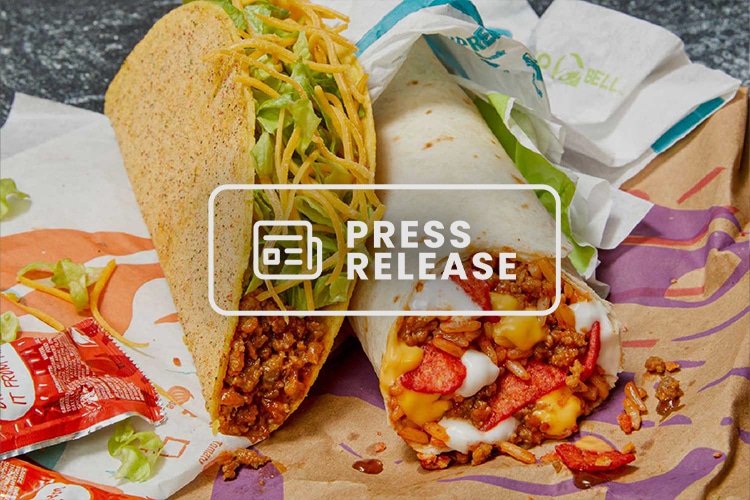
The motto of “redefining the economics of foodservice” has given Duffy and all of his clients a new lease on their business and their lives. On and off camera, Chef Duffy works with restaurants across the country updating their menus and coaching them through much needed face lifts. His proven success has made him one of the most in demand restaurant and hospitality consultants across North America and overseas.
You can listen to the full podcast or read on below for a few key insights heard in the episode.
Working in a restaurant teaches you entrepreneurial skills.
Brian Duffy: The more people that I speak to, that are in the entrepreneurial spirit, have been involved in the hospitality industry. There is so much to be said about that – the thinking on your feet. What I try to say to servers and bartenders all the time is that you are an independent contractor in reality. We have provided you with the dealership. We have provided you with the cars. Now it’s your job to start selling those products. You really are thinking on your feet at every second. And to watch people grow is super cool.
Kristi Turner: I require my daughter and son to have restaurant jobs because it teaches you entrepreneur skills, service, thinking on your feet, you have to deal with every kind of personality out there, and you meet so many people. It’s a cool lesson in life. If everybody could work in a restaurant, we would all be better off.
The restaurant industry was late to adopt technology but will struggle to move forward without it.
Brian Duffy: In reality, the time that a manager has the most opportunity to be in the office is when all of the servers are on the floor and there are guests in the restaurant. It’s the only quiet time that they really get. So, what I am getting to, is that it is really nice to have all of this in one central location. Because there is not a lot of software out there that combines every single thing such as accounting, vendors, inventory, all of the back-office stuff, reports, plus scheduling. There is really nothing out there like that, to combine everything to something that is in your hand.
Kristi Turner: Right, it connects the data. The restaurant industry, as a whole, were late adopters of technology. In just the last 5-7 years the adoption of technology is almost a requirement today. You can’t run a restaurant without using technology. If you do you are minimizing your profitability. To really streamline things, you need to use technology.
Operators with disparate systems aren’t getting the “full picture”.
Brian Duffy: I just bought another restaurant yesterday, so I have been doing a lot of research. There are so many pieces… it’s like apps for your phone. You’re piecing together solutions, whereas your average restaurant owner uses about 10% of what is in our POS system. They are not digging in fully. What is it that your software does that can help us?
Kristi Turner: Our software integrates back-office, workforce, and intelligence. We have an accounting system that is designed for restaurants that is integrated with your inventory software; so, when your bartender is doing inventory and makes an adjustment it is adjusted real-time into your accounting software.
Restaurant operators today are managing 10-13 vendors and using 10% of each. As an operator that means 10-15 log-ins, passwords and support lines, upgrades, etc. so what we have tried to do is pull in back-office, workforce, and intelligence into one package. The business intelligence gives you, as a restaurant operator and as a chef, everything you need to know about your key performance metrics. What’s working and what’s not right to your phone, because you’re on the go.
Mobility is the key to success.
Brian Duffy: One of the things that I love is now we can basically run our restaurant from our phone. I can’t tell you how many times I have sat down at a restaurant to eat lunch, not one of my own places, and I check in on my kitchen in North Carolina.
A good culture increases employee retention and customer satisfaction.
Brian Duffy: Ford Fry was on my show. We did a whole podcast on how to deal with employees. He has an amazingly high retention within his employees because of the way that he manages them.
Kristi Turner: You’re talking about employees and culture and I am an avid believer that employees and customers happiness is driven by relationships. They have to feel valued. They have to feel connected. They have to feel that they are making a difference. It’s never really about the salary. When it’s about the salary there is something wrong with the culture. You need to create a great work environment and culture. That is one of the things I am most proud of at Compeat, we have a very diverse employee base. We are working super hard to be a great place to work because that is going to create great customer satisfaction. Employee happiness equals customer happiness.
This podcast was not a commercial. Chef Brian Duffy took interest in Compeat software and can’t wait to learn more about our software so that he can stop chasing down information within restaurants.
Brian Duffy: There are times when I something that will peak my interest. Something came through my email about Compeat and I really wanted to get involved in it. I wanted to get more information. I started to do research on it. I started to do research on Kristi. And I really liked what the story was. There are a lot of systems out there, and this is not a commercial. I want everyone to understand that right off the bat. This is not a commercial for Compeat. I just wanted to bring to light something that really interested me. Because we literally chase information around within restaurants. Especially, me as a consultant. I spend a lot of timing chasing down inventories, purchasing, the mistakes that are being made within costing, chefs that don’t understand the basics of finances, which is one of the reasons I really wanted Kristi on and I am stoked to get out to NRA, so that I can sit down and check out this system even more.


